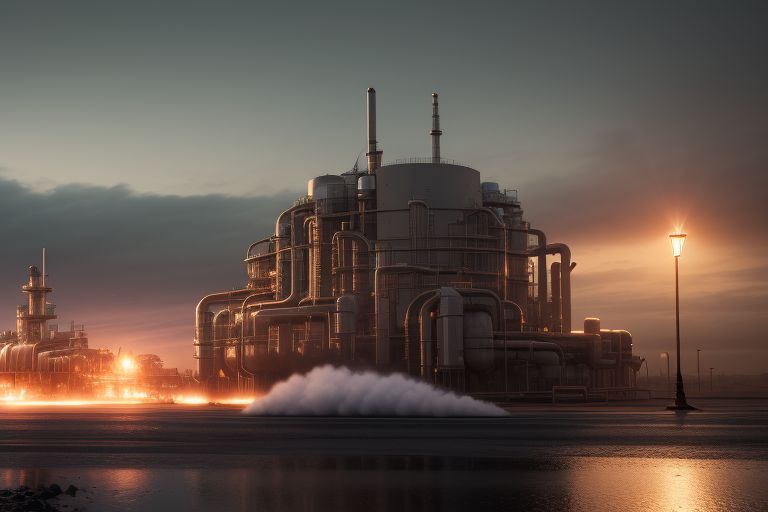
Africa Petrochemical Industry Sees Major Developments and Investments
The African petrochemical industry is experiencing significant growth and attracting substantial investments, as evidenced by recent developments across the continent. In Ghana, a groundbreaking ceremony has taken place for the first phase of the ambitious $60 billion Petroleum Hub project, which is set to become Africa’s first integrated petrochemical complex. This massive undertaking aims to capture more value from Ghana’s oil production, which began in 2010 and now accounts for a fifth of the country’s exports.
The Petroleum Hub, located on an 8,000-hectare plot in the western coastal district of Jomoro, will be developed in three phases. The initial $12 billion phase will include the construction of a refinery capable of processing 300,000 barrels of crude oil per day, along with chemical works that can handle 90,000 barrels daily. Additionally, the project will feature large storage tanks with a capacity of 3 million cubic meters for oil and its derivatives. Upon completion, the hub is expected to house three refineries, five petrochemical plants, and a new port.
President Nana Addo Dankwa Akufo-Addo, speaking at the groundbreaking ceremony, emphasized the project’s importance as a cornerstone of Ghana’s development. He highlighted its potential to create approximately 780,000 direct and indirect jobs, stabilize the national currency, and stimulate local economic growth. The project is being executed by the TCP-UIC Consortium, which includes UK investor Touchstone Capital, Singapore-based Union International & Co, China Wuhan Engineering, and China Construction Third Engineering Bureau.
In South Africa, the petroleum sector is witnessing increased interest from international oil companies. TotalEnergies and QatarEnergy have recently farmed into offshore Block 3B/4B, expanding their positions in the South African portion of the prolific Orange Basin. This 17,581 square kilometer block, located 200 km off the western coast of South Africa, is adjacent to TotalEnergies’ Deep Water Orange Basin license and has been prepared for a drilling campaign.
The deal will see TotalEnergies acquire a 33% operating stake in Block 3B/4B, while QatarEnergy will hold 24%. The remaining interests will be held by Africa Oil (17%), Ricocure (19.75%), and Azinam (6.25%). This move follows TotalEnergies’ significant Venus discovery in Namibia in 2022, which has positioned the Orange Basin as one of the world’s most exciting exploration destinations.
The South African portion of the Orange Basin has seen slower development compared to its Namibian counterpart. However, Africa Oil has identified several exploration prospects in water depths of around 1,500 meters and has initiated plans for a drilling campaign. 3D seismic surveys have already been conducted on Block 3B/4B, further enhancing its potential.
While South Africa is not yet an oil producer and relies on imports, the country possesses significant hydrocarbon resources. The development of these resources has faced challenges, including legal actions by environmental groups and delays in key oil and gas legislation. The Upstream Petroleum Resources Development Bill, which is expected to provide greater certainty for operators and producers, is unlikely to become law before South Africa’s May election.
Elsewhere in Africa, the petrochemical industry continues to evolve. In Egypt, efforts are underway to expand the country’s petrochemical production capacity and attract foreign investment. The government has been implementing reforms and offering incentives to encourage the development of new petrochemical projects and the modernization of existing facilities.
Nigeria, Africa’s largest oil producer, is also focusing on developing its petrochemical sector to diversify its economy and reduce dependence on crude oil exports. The country has been working on several large-scale petrochemical projects, including the Dangote Refinery and Petrochemical Complex, which aims to become one of the world’s largest integrated refinery and petrochemical facilities.
As African countries continue to invest in and develop their petrochemical industries, the continent is poised to play an increasingly important role in the global petrochemical market. These developments are expected
gy-farm-in-to-south-african-oil-exploration-blockon-block